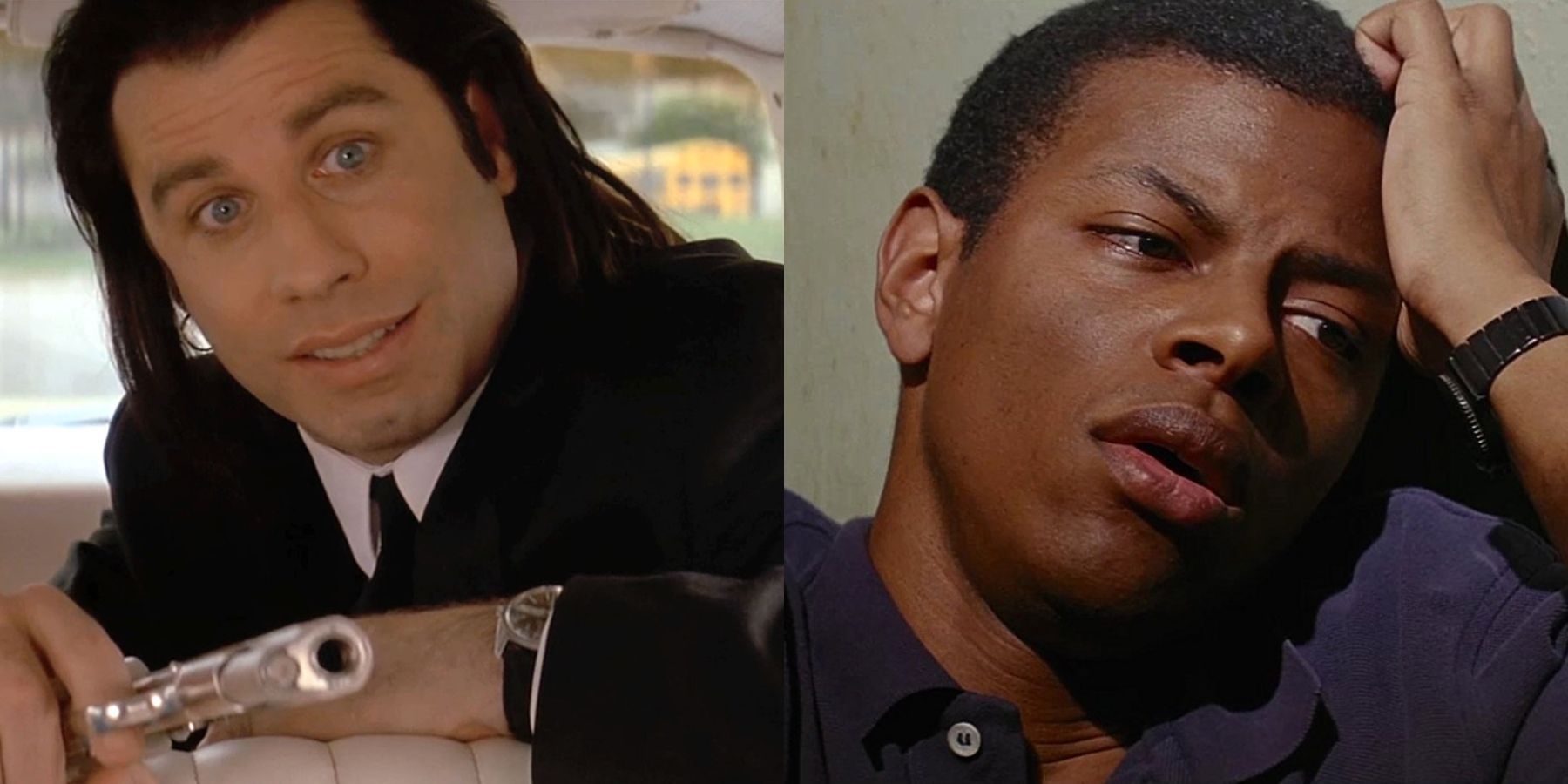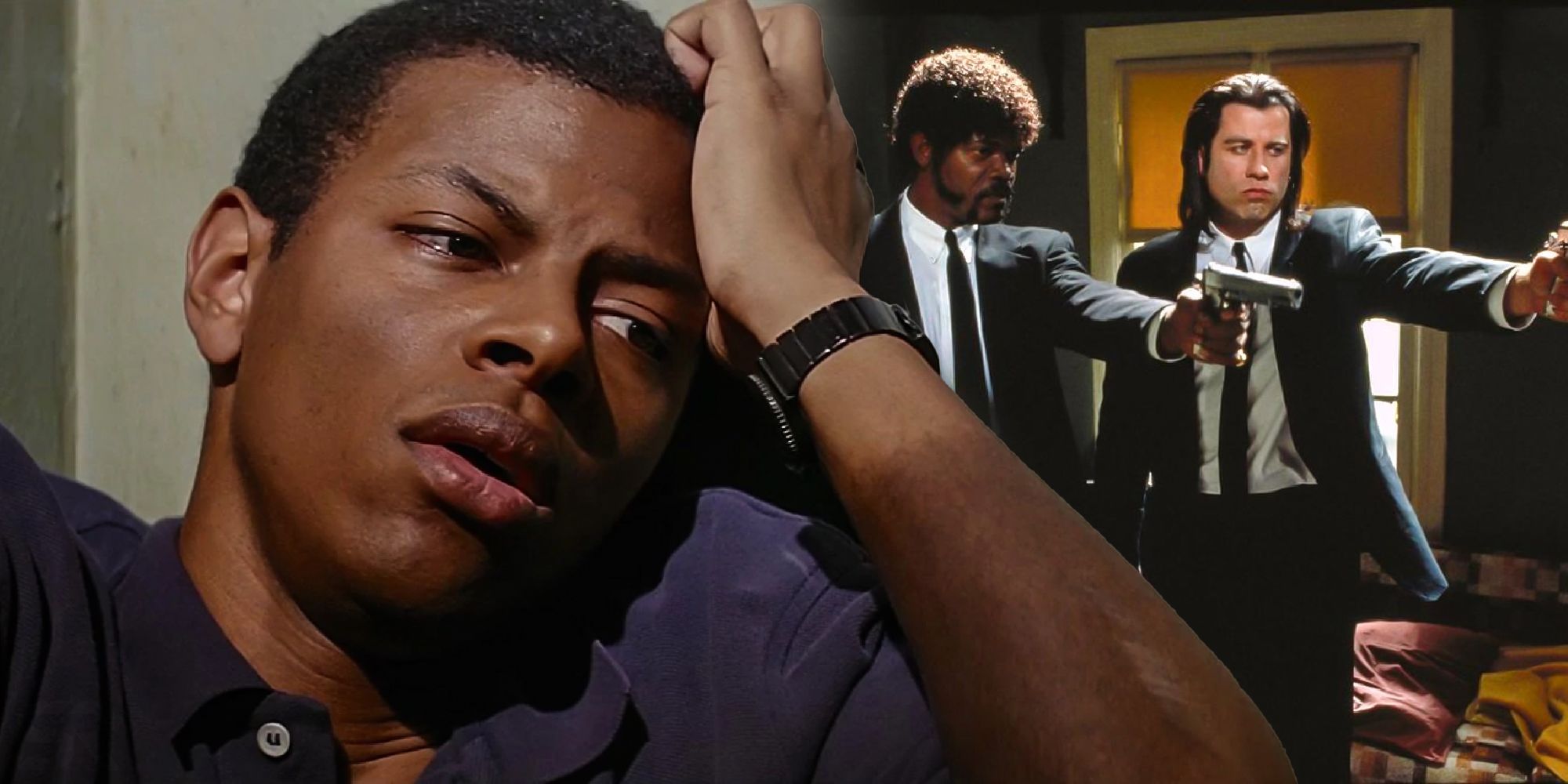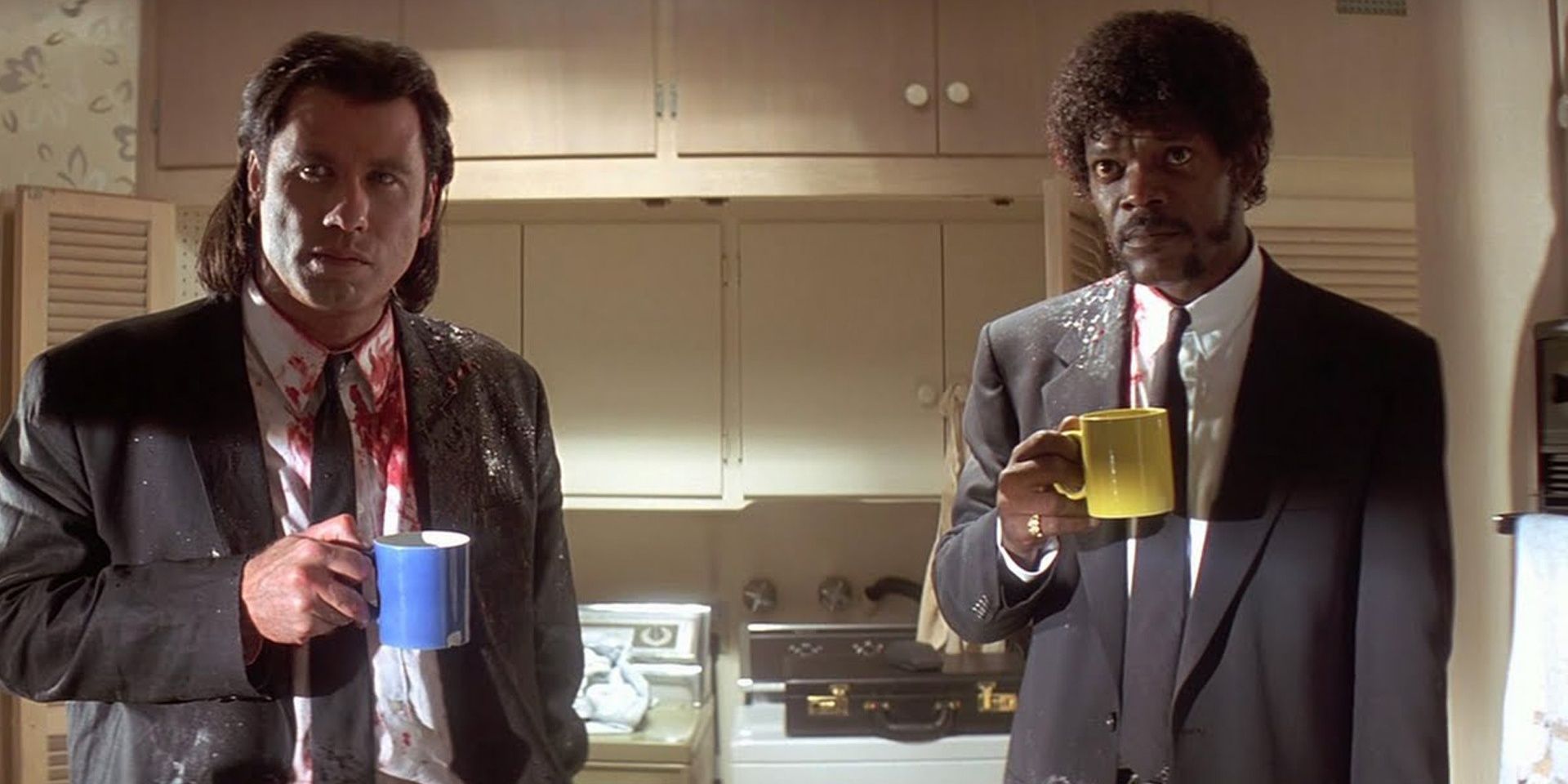
Quentin Tarantino has a way with words when it comes to dialogue, which is what makes his 1994 cult classic film Pulp Fiction so lovable. It's crazy to think how people actually told him that if he made Pulp Fiction, he would never make another movie again. TriStar Pictures was quoted saying "This is the worst thing ever written. It makes no sense. Someone’s dead and then they’re alive. It’s too long, violent, and unfilmable" when Tarantino first brought them his script. But years later, that same violence and nonlinear timeline are still making heads turn and audiences show up to theaters.
Sometimes Quentin Tarantino will use over-the-top violence for the sake of dramatic imagery or comedic relief. Other times, the violence is important to the storyline. At first, Vincent shooting Marvin acts like a comedic punchline because of the absurdity in how casual Vincent reacts to the situation, merely exclaiming, "Oh man, I shot Marvin in the face." But if viewers look closely, they can clearly see Vincent's finger flex around the trigger. Vincent blames the "accident" on the possibility of Jules having driven over a bump in the road; is he lying? If Vincent is lying, then there is a theory about why he would have intentionally killed Marvin.
RELATED: Pulp Fiction: What Was In That Briefcase?
Actor Samuel L. Jackson (who plays Jules in Pulp Fiction) created this theory back in 2019 during the Spider-Man: Far From Home press tour with ReelBlend. He claims that Vincent (played by John Travolta) really did shoot Marvin on purpose to get revenge on him since Marvin never told the hitmen there was someone hiding in the bathroom of the apartment with a gun. And although that gunman shot at Jules and Vincent, he missed every shot. But it was still enough of a scare and inconvenience that Vincent might have thought Marvin needed to be punished for it for not warning them. It's not stated, but many think that Marvin was an informant for Jules and Vincent.

During a two-hour podcast hosted by ReelBlend with guest Quentin Tarantino, the director of Pulp Fiction gave his take on Sam Jackson's theory as well as his own thoughts on the scene. He said, "Well, look, in my movies, if I want you to know, I tell you. And if I leave it open, I'm leaving it open for you. So, I could tell you what I think. But if I tell you what I think, then that is the way it is. And I've got no problem with Sam's version of it. And I have no problem with anybody else who has that version of it. But I don't want to tell you what to think." Tarantino went on to say that he loves "any scenario where both ways almost equally work," 'both' referring to the event as being an accident or intentional.
Samuel Jackson's theory seems to hold up when rewatching the scene. It is safe to say that no characters in Pulp Fiction are typical heroes. Although there are characters viewers can and do root for, every character appears to be morally corrupted in some way. Basically, no one here is the good guy. Vincent especially, whose job is to kill people, is not exactly an angel or saint. A character like Vincent would have no problem killing someone, especially when they interfered with business matters or almost got them killed. Vincent even works for a gangster boss who kills anyone who crosses him. Vincent and Marsellus would have to have similar ways of thinking for them to work so closely together.

That means that Vincent is just as ruthless of a killer as Marsellus is. When watching the scene, it looks like Vincent swings around towards Marvin too carelessly while holding his gun, maybe as if trying to appear like it was an accident. But viewers really can see him pull the trigger. Either it was intentional, or Vincent isn't exactly the brightest or most cautious guy. Vincent shoots Marvin right after Jules says he is retiring. And although they are just coworkers, maybe Vincent wanted Jules to stay in the business just a little longer so that he could still work with his friend.
Having to deal with the mess in the car and Marvin's body would have definitely taken Jules' mind off of retiring long enough for Vincent to maybe try to convince him to stay in the business. Either this is because Vincent would have missed his friend and coworker, or maybe Vincent's corrupted soul wanted to tempt Jules to stay evil now that he was starting to try to be a good person. Or perhaps, to make both ways work like Tarantino says he would love, maybe Vincent really was planning to kill Marvin and was going to shoot him. But he really did accidentally shoot him in the car, as he didn't want to get caught with the mess in Jules' car. This is just one of the dozens of intentionally unanswered questions in Pulp Fiction.
MORE: Why Did Frodo Have To Leave Middle Earth At The End Of Return Of The King?

